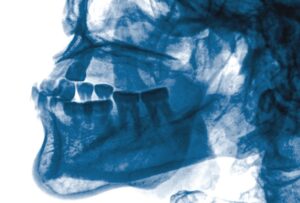 The realm of oral surgery isn’t somewhere everyone needs to go in the course of their oral health care. Surgical treatments are typically reserved for extreme and/or complex oral health conditions that can’t be addressed with general dental care and restorative measures. When surgery with an expert is recommended, it’s typically to address a specific concern that may require highly involved, precise surgical correction. For example, in the case of jawbone surgery, your treatment may be designed to recover from a traumatic injury, correct a congenital malformation, fortify a weakened part of its structure, or more.
The realm of oral surgery isn’t somewhere everyone needs to go in the course of their oral health care. Surgical treatments are typically reserved for extreme and/or complex oral health conditions that can’t be addressed with general dental care and restorative measures. When surgery with an expert is recommended, it’s typically to address a specific concern that may require highly involved, precise surgical correction. For example, in the case of jawbone surgery, your treatment may be designed to recover from a traumatic injury, correct a congenital malformation, fortify a weakened part of its structure, or more.
When a traumatic injury damages your jawbone
Recovering from a traumatic facial injury can be one of the more complex situations for surgery to address. Your facial and oral structures, including your jawbone, are intricately connected, and restoring damage in one area can require treatment such as jawbone surgery as well as other orofacial surgical corrections. The connected nature of your facial and oral structures is why correcting such injuries requires the expertise of an oral surgeon, who’s well-versed in the different ways each of these structures should interact with each other properly.
When a congenital issue affects its formation
Some concerns with your jawbone and/or oral structures aren’t the result of an injury or other occurrence, but are rather congenital concerns that are present from birth. For example, your jawbone structure may develop in a way that leaves it asymmetrical, with one side longer or larger than the other. This can dramatically affect your bite’s proper function as well as your facial appearance, and correcting it could require personalized jawbone surgery to make your dental ridge more even and symmetrical. Depending on the extent of your congenital jawbone issue, restoring your oral health could also require additional treatments to correct the overall alignment of your teeth and bite.
When the bone structure becomes weaker
In addition to your surrounding oral and facial structures, your jawbone is also an important part of the health and integrity of your teeth. Mainly, it forms the foundation that supports your teeth roots, and likewise, it relies on your teeth roots to receive consistent stimulation when you bite and chew. Because of this connection, your jawbone may become weaker after losing one or more teeth, as the absence of the teeth roots can result in a diminished stimulation in your jaw. To fortify this foundation, you may benefit from jawbone grafting, especially if you plan to receive dental implants to replace your lost teeth roots.
Learn if jawbone surgery can help you
For certain conditions, jawbone surgery could be a necessary measure for improving your oral health, bite function, and more. To learn more, or to schedule a consultation, call Santa Rosa Oral Surgery in Santa Rosa, CA, today at 707-545-4625.

